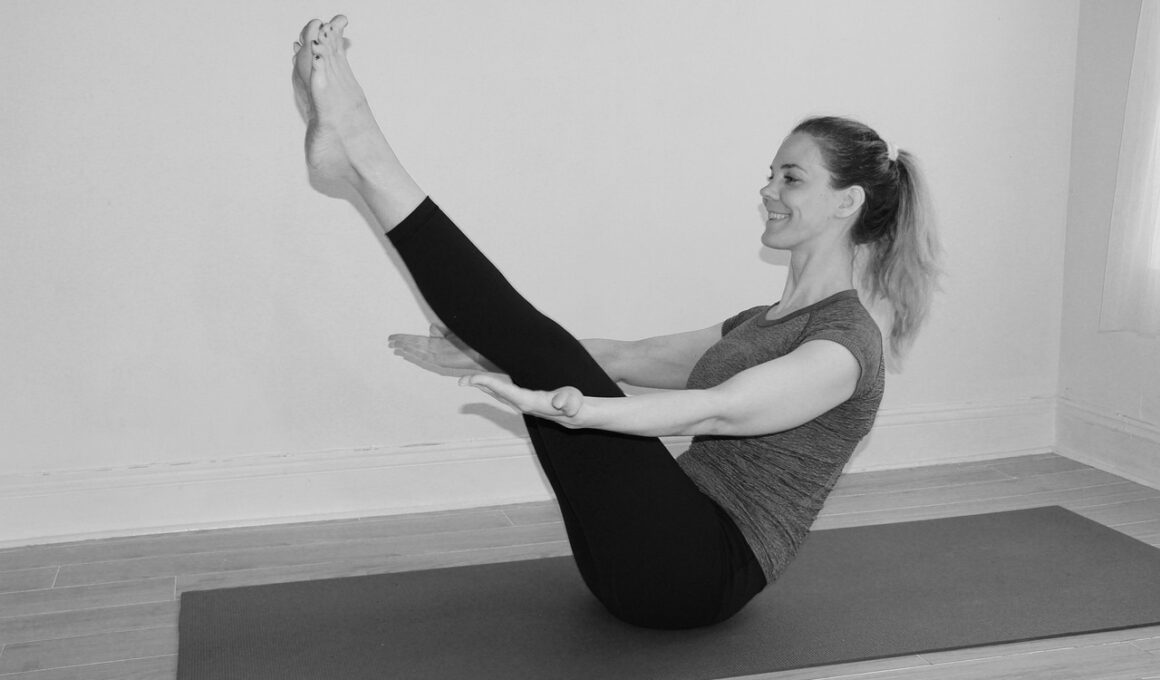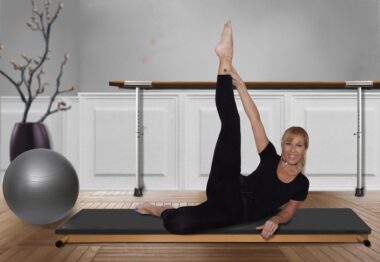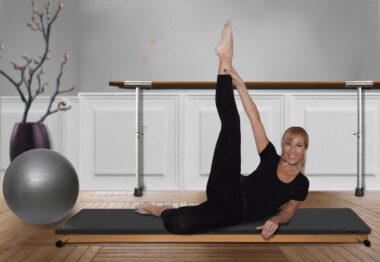Essential Skills Every Pilates Instructor Should Master
Being a successful Pilates instructor requires a diverse skill set that transcends mere knowledge of exercises. First, instructors must have a deep understanding of Pilates principles, including alignment, core stability, and breath. These principles form the foundation for every exercise and ensure that students practice safely and effectively. Next, communication is key; instructors need to demonstrate points clearly and provide constructive feedback. It’s important to cultivate an atmosphere of trust and encouragement in which students feel comfortable asking questions or expressing concerns. Additionally, observing students is essential. Instructors should assess their students’ form and technique, making necessary adjustments while offering verbal cues to help them improve. It’s also vital for instructors to keep evolving personally and professionally. Continuing education through workshops or training courses can provide fresh perspectives and knowledge that benefit both the instructor and their students. Likewise, building rapport and connecting with individual students is crucial. Tailoring instruction to meet each student’s needs helps foster a more effective learning environment. Finally, passion for Pilates and a positive attitude will inspire students to embrace the practice with enthusiasm.
The next essential skill every Pilates instructor should focus on is injury prevention. Understanding anatomy and common injuries helps instructors provide modifications suitable for clients recovering from injuries. Each student possesses a unique body with different challenges, so personalizing programs is imperative. Moreover, instructors must remain current with developments in both Pilates and fitness. This ongoing learning not only keeps the instructor informed about new techniques but enhances their expertise, ultimately benefiting students. Technical proficiency in the methods and equipment used is another essential skill. Familiarity with various apparatus such as the reformer, cadillac, or stability chair aids in creating diverse workout programs. Instructors must confidently demonstrate exercises to foster client trust. For better engagement, instructors should also strive to facilitate a welcoming environment. This includes designing classes that accommodate various skill levels, ensuring each participant feels included. Moreover, methodology in structuring classes effectively helps maintain student interest while achieving their fitness goals. Strong organizational skills assist in scheduling sessions, planning lesson objectives, and assessing student progress, all essential for professional development. When instructors exhibit passion, knowledge, and a nuanced approach, this motivates students and strengthens their commitment to the practice.
Enhancing Personal Connections with Students
Building personal connections with students is essential for a successful Pilates practice. It encourages loyalty and motivation in clients, helping them to appreciate each session significantly. To achieve this, instructors should make an effort to learn students’ names and understand their specific goals, facilitating a tailored approach. Another advantageous skill is the ability to listen actively; this shows students that their concerns and motivations matter. Taking time to gather feedback regarding their experience could provide valuable insights for future classes. Establishing a community atmosphere among students further reinforces this connection. Creating opportunities for social interactions, such as hosting workshops or events, fosters camaraderie, making students feel valued within the Pilates community. Moreover, cultivating empathy and compassion allows instructors to understand their students’ unique challenges. This understanding paves the way for addressing individual needs. Instructors can also inspire students to support one another through paired exercises or group challenges, promoting a collaborative spirit. Furthermore, encouraging accountability encourages students to commit to their goals. Setting achievable milestones fosters motivation, leading to greater satisfaction. The culmination of these strategies results in stronger bonds, ultimately enhancing the Pilates experience for everyone involved.
Another aspect that instructors should master is marketing and business skills. Effectively promoting classes requires an understanding of the target demographic. Instructors should utilize social media as a platform for showcasing their expertise and engaging potential clients, sharing success stories and testimonials. A well-designed website can serve as a vital marketing tool, offering crucial information about the instructor’s background, class schedules, and any upcoming workshops. Building a loyal client base is essential for financial stability. To do this, instructors should offer promotional discounts and referral programs to encourage word-of-mouth advertising. Networking within the local fitness community can build valuable relationships with other professionals, leading to potential collaborations or partnerships. Additionally, clients appreciate a flexible cancellation policy and clear communication regarding studio policies. Having strong business acumen can also aid instructors in setting attainable financial goals, allowing for personal growth and the possibility of expanding their services. Taking these steps can bolster an instructor’s reputation, attracting more students and ensuring the longevity of their Pilates career. When instructors engage professionally and authentically with clients, it ultimately enriches the entire Pilates experience.
Incorporating Mindfulness and Well-Being
Instructors should emphasize mindfulness and well-being in their teaching approach. This aspect is central to Pilates philosophy and aids in enhancing the client experience. Integrating mindfulness techniques, such as breath work and meditation, allows students to cultivate better body awareness. Helping them connect movement with breath encourages them to be present during their practice, significantly alleviating tension and stress. Instructors can guide students through mindfulness exercises before commencing the physical practice, resulting in improved concentration and focus. Additionally, teaching relaxation techniques at the end of each session fosters a sense of well-being, which is essential for overall health. Developing empathy as an instructor can also improve the experience by making students feel understood and valued. When instructors show they genuinely care about students, it creates an emotional connection. Moreover, allowing students to set their intentions at the start of class can enhance their journey, promoting self-reflection and purpose. Incorporating discussions around overall wellness, nutrition, and balanced living further enriches the Pilates practice, fostering a holistic approach. This attention to mental and emotional health not only improves clients’ physical capabilities but also inspires them to pursue well-being outside the studio.
Another necessary skill for Pilates instructors is the ability to adapt to various teaching environments. Whether in a studio, outdoor setting, or online, being versatile can make a significant difference. Instructors must be prepared to modify their teaching style and approaches based on the space and available equipment. Being resourceful and innovative will allow instructors to generate exercises that maximize the potential of any given environment. Moreover, instructors should familiarize themselves with technology if providing online classes is part of their offerings. Learning how to effectively use video conferencing tools and social media platforms can ensure seamless interaction and communication with clients. Additionally, developing a strong presence and ability to engage virtually can maintain student interest. This adaptability opens new opportunities for workshops or classes in diverse settings, thus expanding instructors’ reach. Furthermore, being open to constructive criticism allows instructors to grow as educators and fine-tune their teaching methodologies. Seeking external feedback from students can lead to improved class experiences. In the end, by embracing adaptability and remaining open to change, instructors can thrive in today’s dynamic fitness atmosphere.
Creating a Positive Learning Environment
A pivotal skill for Pilates instructors is the ability to create a positive learning environment. Cultivating an atmosphere of support and encouragement helps to have students feel secure and motivated. Instructors should use strong, yet encouraging language to build confidence among participants, which empowers them to embrace challenges within their practice. It’s equally essential to ensure that the space used for teaching is clean, organized, and welcoming. This includes appropriate lighting and music that enhances the overall experience. Instructors should also consider balance during classes, providing modifications for varying skill levels while challenging more advanced students. Setting realistic expectations allows every student to feel accomplished regardless of their background or experience. Regularly celebrating achievements, both big and small, fosters a sense of community within the class. Additionally, encouraging interaction among students can enhance the collective experience, reinforcing that they are part of a supportive group. Instructors should be mindful of their energy and enthusiasm, as this positivity can be contagious. By prioritizing a nurturing environment, instructors contribute significantly to student retention and satisfaction while fostering a lifelong commitment to Pilates.
Lastly, mastering the art of teaching effectively requires creativity. Preserving enthusiasm in classes can lead to enhanced motivation among practitioners. Frequent class updates and interactive elements can keep participants engaged. Consider incorporating themes into classes, such as focusing on specific muscle groups or goals. This variety can transform sessions into unique experiences. Instructors can also explore different methods, such as incorporating music or props to make workouts enjoyable and versatile. Creating challenges that encourage friendly competition can also boost engagement, inspiring students to push their limits. Developing original sequences and updating existing routines fosters a fresh environment, preventing stagnation. Using humor and energy when teaching can create a lively atmosphere, enhance relationships, and encourage word-of-mouth recommendations. Lastly, gathering feedback and insights from students regarding class preferences can provide valuable information for future planning. Engaging with students through informal discussions or surveys ensures instructors remain attuned to their needs. In this way, creativity in teaching not only improves lesson plans but also emphasizes the joys of Pilates practice. Together, these skills form the basis for successful and impactful Pilates instruction.





